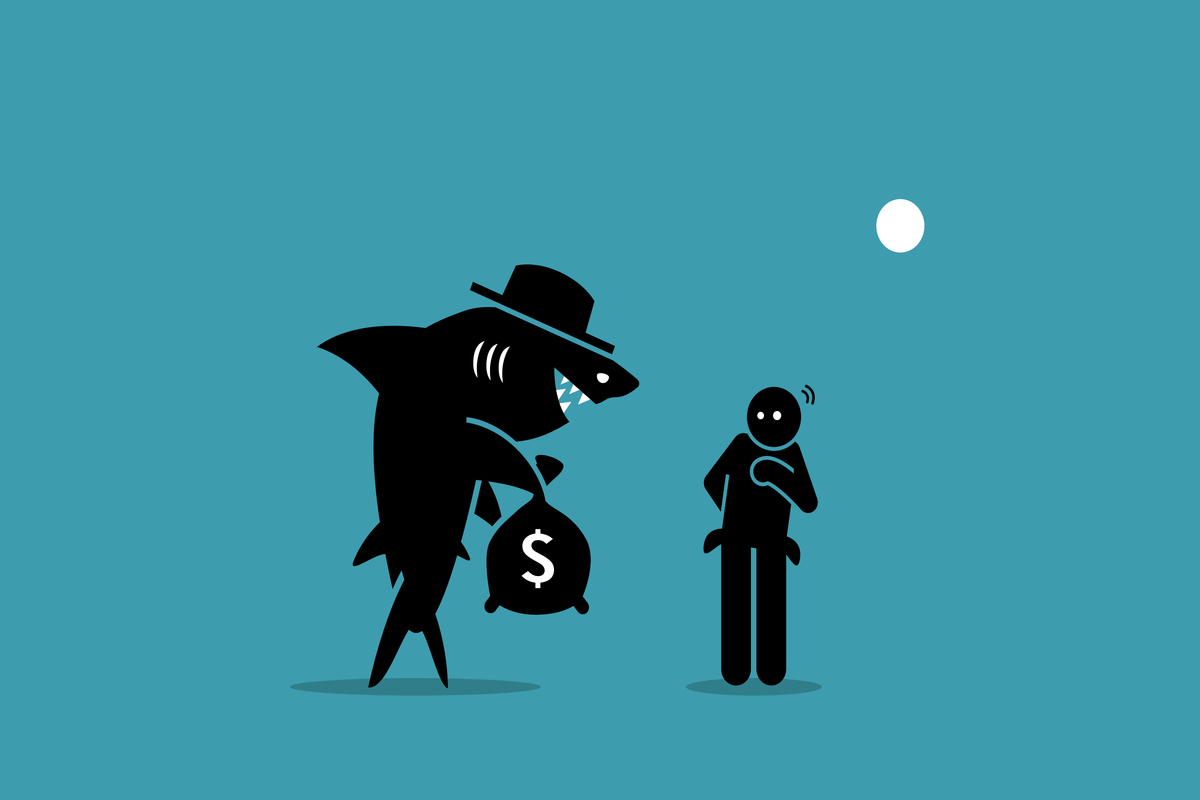Dear visitor,
You're reading 1 of your 3 free news articles this quarter
Register with us for free to get unlimited news, dedicated newsletters, and access to 5 exclusive Premium articles designed to help you stay in the know.
Join the UK's leading credit and lending community in less than 60 seconds.
Desperate Brits turning to loan sharks to make ends meet
Britain is seeing an explosion in the number of people falling into a ‘debt spiral’ and using loan sharks amid cost-of-living crisis, warns Cambridge academic

Dr Jodi Gardner, University Lecturer in Law at the University of Cambridge and a Fellow of St John’s College, warns there has been a sharp rise in illegal lending, with a report from The Centre for Social Justice showing that more than one million people could be relying on illegal loan sharks – which is over 700,000 more than previous estimations.
She said: “In response to the cost-of-living crisis and the lack of access to legal credit options, the illegal credit market has expanded hugely. There are other drastic measures people take when they cannot make ends meet – they go without food, they’re reliant on food banks, they go without heating their home, which has a variety of different kinds of social and health outcomes.”
The pandemic and current cost of living crisis are laying bare the consequences of financial laws brought in to prevent the predatory tactics of high interest ‘payday’ credit companies such as Wonga (which famously collapsed in 2018) on people who are financially insecure. Although welcomed by many at the time, it has become clear that the reforms left many families on the fringes of poverty with no access to quick, legal finance, such as credit cards or payday loans – and sparked a growing reliance on illegal loan sharks.
Dr Gardner said: “Petrol is being thrown on the fire. High-cost credit is harmful in lots of ways but if they’re the one access to legal credit for already struggling borrowers, cutting them off can create a bunch of other side effects.”
The global financial crisis of 2008 resulted in a tenfold increase in just six years of people taking out short-term, high-cost credit loans simply to pay their bills from one week to the next, until the Financial Conduct Authority (FCA) toughened up regulations. This move saw 160,000 people who used to access high-cost credit suddenly cut out of the market. The Government said, ‘Well, this is a good thing because these financial products are exploitative and very expensive, people are better off’,” says Dr Gardner.
So, while high-cost credit can be expensive and exploitative, Dr Gardner argues it is nowhere near as dangerous and harmful as borrowing from illegal lenders. Reforms that cut off access to legal credit, particularly during a cost-of-living crisis, have the potential to push even more people desperate for funds into the arms of loan sharks.
In 2019 Citizens Advice saw approximately 1,500 people get in contact about difficulties with prepaid energy meters. Last year the figure was just over 3,000 – this summer, it’s more than 10,000. With the cost-of-living crisis only expected to get worse, Dr Gardner is fearful about the devastating impact on struggling households. Dr Gardener says: “The increased demand for high-cost credit came about because of the global financial crisis, and we are seeing exactly the same thing now with the cost-of-living crisis.”
In the FCA’s 2020 Financial Lives survey, 23 per cent of people who used high-cost credit in the previous 12 months were going through a divorce or separation and 19 per cent had lost their job or had a reduction in hours.
Dr Gardner is calling for affordable borrowing to be made legally available for those who need short-term loans to plug the gaps in their everyday expenses, not just to those who can afford it – taking guidance from countries such as Australia. An understanding of the impact that high-cost credit has on people with mental health difficulties or gambling addictions is also vital, along with regulation around those issues.
Dr Gardner said: “The bottom line is we have to reduce poverty. We have to ensure everyone has access to a safety net when they have unexpected financial difficulties. And they don’t have to turn to high-cost credit loans to bridge that gap.”
Stay up-to-date with the latest articles from the Credit Strategy team
Get the latest industry news






